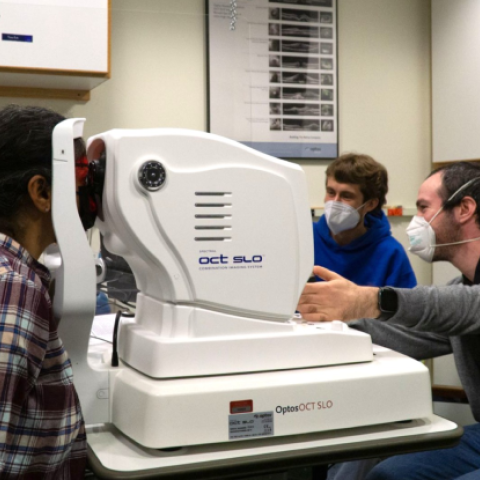

- Principal Investigator:
- Natela Shanidze
Two-thirds of patients with CFL complain of vestibular problems, such as dizziness and instability, leading to a high incidence of potentially fatal accidents and falls. The problem is exacerbated by the patient population’s advanced age, due to the documented decline in vestibular function in senescence. Vestibular deficits in CFL patients are likely due to miscalibrated or non-optimal stabilizing eye movements - many essential oculomotor behaviors are highly reliant on retinal input. Individuals with compromised vestibular responses have difficulties with visual field stability, navigation, and self- and external motion perception. These limitations are particularly true for CFL patients, whose visual acuity is already compromised and for whom the vestibular system becomes the predominant source of motion information. Furthermore, vestibular deficits likely affect patients’ use of head movements to compensate for oculomotor limitations due to eccentric viewing and a patchy visual field. Our research aims to examine how head movements contribute to visually-driven oculomotor function in individual with CFL and understand the effect of CFL of vestibular function, specifically the vestibulo-ocular reflex.

